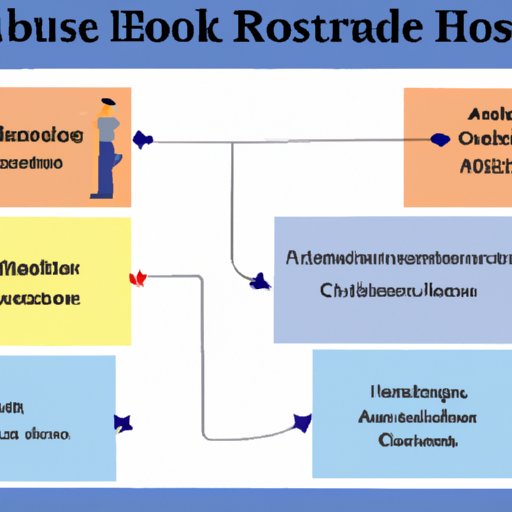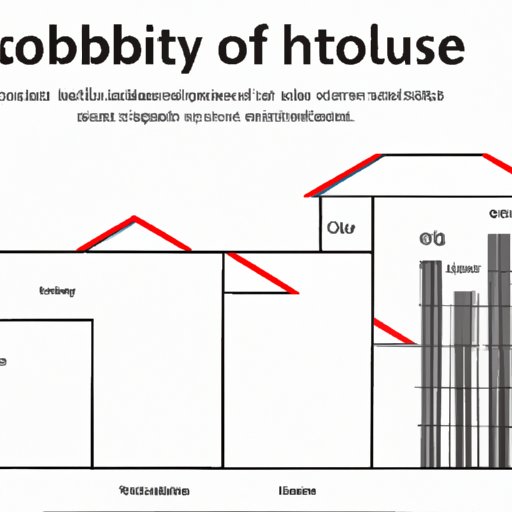Introduction
House arrest is an alternative to traditional incarceration that allows those who have been convicted of a crime to serve their sentence outside of prison or jail. This type of punishment has become increasingly popular in recent years as a way to reduce overcrowding in prisons and jails, while also providing a less punitive option for those who are willing to comply with the requirements of their sentence. In this article, we will explore how house arrest works and examine its benefits and drawbacks.

Examining Benefits and Drawbacks of House Arrest
When considering the use of house arrest as a sentencing alternative, it is important to consider both the advantages and disadvantages of this form of punishment. Here, we will look at some of the benefits and drawbacks of house arrest.
Advantages of House Arrest
One of the primary advantages of house arrest is that it allows individuals to remain connected to their families and communities. Unlike traditional incarceration, which requires individuals to be held in a correctional facility, house arrest permits those who are sentenced to remain at home and maintain contact with friends and family members. This can help reduce feelings of isolation and provide support during the individual’s sentence.
In addition, house arrest may be more cost-effective than traditional incarceration. According to a 2013 study by the Vera Institute of Justice, “the average cost of confinement in a local jail was $22,650 per inmate per year, compared to an average cost of $8,886 per person per year for house arrest.” This cost savings can be beneficial to both the individual and the state or county responsible for administering the sentence.
Disadvantages of House Arrest
While there are numerous potential benefits to using house arrest as a sentencing alternative, there are also some drawbacks. One of the primary disadvantages is that house arrest can be difficult to monitor. Those sentenced to house arrest must often wear an electronic monitoring device that tracks their whereabouts, but this system is not foolproof. If an individual is able to evade the monitoring system, he or she may be able to violate the terms of their sentence without being detected.
In addition, some critics argue that house arrest does not provide enough of a deterrent to crime. Because individuals are able to remain in their homes, they are not subjected to the same harsh conditions that accompany traditional incarceration. As a result, some believe that house arrest does not effectively punish those found guilty of committing a crime.

Understanding How House Arrest Works in Different States
The laws and regulations surrounding house arrest vary from state to state. In some states, house arrest may be used as a sentencing alternative for certain crimes, while in others it may only be available as a condition of probation or parole. Additionally, the length of a house arrest sentence and the conditions of the sentence may differ depending on the jurisdiction.
State Regulations and Laws
Each state has its own set of laws and regulations governing the use of house arrest. For example, in California, house arrest is only available as a condition of probation or parole, while in Florida, it may be used as a sentencing alternative for certain nonviolent offenses. It is important to check the laws in your state before deciding whether or not to pursue house arrest as a sentencing option.
Differences in Sentencing
The length of a house arrest sentence and the conditions associated with it may also vary from state to state. In some states, a house arrest sentence may last up to one year, while in other states it may be much shorter. Additionally, the conditions of a house arrest sentence may include restrictions on where the individual is allowed to go and what activities he or she is allowed to participate in. It is important to carefully review the conditions of a house arrest sentence before agreeing to it.
Looking at Alternatives to House Arrest
In some cases, house arrest may not be the best option for an individual. There are several alternatives to house arrest that may be more suitable for certain individuals, including probation, community service, and other forms of punishment.
Probation
Probation is an alternative to incarceration in which an individual is placed under the supervision of the court or a probation officer for a period of time. During this period, the individual must abide by certain conditions, such as attending counseling sessions and performing community service. Probation may be a better option for those who are deemed unlikely to reoffend.
Community Service
Community service is another alternative to incarceration. Individuals may be required to perform a certain amount of hours of community service as part of their sentence. This could involve anything from cleaning up parks to volunteering at a local charity. Community service is often seen as a more constructive alternative to incarceration.
Other Forms of Punishment
In some cases, an individual may be sentenced to other forms of punishment, such as fines or restitution. These types of punishments are typically used in cases where the individual has committed a minor offense and is not considered a threat to public safety.
Comparing House Arrest to Other Forms of Punishment
When deciding on the best option for an individual, it is important to compare the different alternatives. Here, we will look at some of the ways in which house arrest differs from other forms of punishment.
Cost
As mentioned earlier, house arrest can be more cost-effective than traditional incarceration. According to the Vera Institute’s study, the average cost of confinement in a local jail was $22,650 per inmate per year, compared to an average cost of $8,886 per person per year for house arrest.
Length of Sentence
The length of a house arrest sentence can vary from state to state and from case to case. Generally, house arrest sentences are much shorter than traditional sentences, with many lasting anywhere from a few months to a year.
Impact on Society
Finally, it is important to consider the impact of house arrest on society. While house arrest can be beneficial in reducing overcrowding in prisons and jails, some critics argue that it does not provide sufficient punishment for those convicted of a crime. Additionally, it may be difficult to monitor those sentenced to house arrest, making it difficult to ensure that they are abiding by the terms of their sentence.
Discussing the Pros and Cons of House Arrest
When considering the use of house arrest as a sentencing alternative, it is important to weigh the pros and cons. Here, we will discuss some of the key advantages and disadvantages of house arrest.
Pros
One of the primary advantages of house arrest is that it allows individuals to remain connected to their families and communities. Additionally, it can be more cost-effective than traditional incarceration and may provide a more constructive form of punishment for those who are deemed unlikely to reoffend.
Cons
On the other hand, house arrest can be difficult to monitor, making it difficult to ensure that those sentenced are abiding by the terms of their sentence. Additionally, it may not provide sufficient punishment for those convicted of a crime, leading some to argue that it is not an effective form of punishment.

Analyzing the Impact of House Arrest on Individuals and Society
When considering the use of house arrest as a sentencing alternative, it is important to consider its impact on both individuals and society. Here, we will look at some of the ways in which house arrest can affect individuals and society.
Impact on the Individual
For individuals, house arrest can provide some benefits, such as allowing them to remain connected to their families and communities. Additionally, it can be a less punitive form of punishment for those who are willing to comply with the terms of their sentence. However, it can also be difficult for those sentenced to house arrest to find employment or participate in activities outside of their home, as they may be restricted in their movements.
Impact on Society
From a societal perspective, house arrest can be beneficial in reducing overcrowding in prisons and jails. Additionally, it may provide a more constructive form of punishment for those who are deemed unlikely to reoffend. However, it can also be difficult to monitor those sentenced to house arrest, making it difficult to ensure that they are abiding by the terms of their sentence.
Conclusion
House arrest can be an effective alternative to traditional incarceration, but it is important to consider both the advantages and disadvantages of this form of punishment. Additionally, it is important to understand the laws and regulations surrounding house arrest in your state and to consider the impact of house arrest on both individuals and society. Ultimately, it is up to the individual and their attorney to decide if house arrest is the best option for their particular situation.
(Note: Is this article not meeting your expectations? Do you have knowledge or insights to share? Unlock new opportunities and expand your reach by joining our authors team. Click Registration to join us and share your expertise with our readers.)
